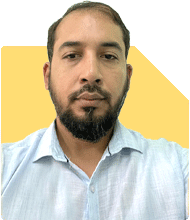Is Agricultural Engineering the Right Choice for me?
Aasif Ahmed Khan |164 Answers |Ask -Follow
Tech Career Expert - Answered on Jul 05, 2024
Aasif is passionate about guiding students and aspiring engineers as they aim to choose the right educational paths, including courses and colleges.
He holds a bachelor's degree in mechanical engineering from the Indore Institute of Science & Technology in Indore and is currently pursuing a master's degree in thermal and fluid engineering at the Indian Institute of Technology, Mumbai.... more

Good afternoon sir is Agricultural engineering preferable for girls if so which college is best for agricultural engineering
If your daughter is interested in agricultural engineering, it is a fascinating field that combines engineering principles with agricultural sciences there are several excellent colleges to be consider.
I’ve provided information about colleges in India.
Annasaheb Dange College of Engineering and Technology: Located in Maharashtra, this college offers Agricultural Engineering courses and provides a supportive learning environment.
India Institute of Technology (IIT) - MIT Aurangabad: Ranked #101-150 by NIRF, it offers Agricultural Engineering programs and has 40 seats for BTech in Agricultural Engineering.
Mahatma Phule Krishi Vidyapeeth (MPKV) Pune: Known for its agricultural research, MPKV offers relevant courses in this field.
You may like to see similar questions and answers below
Prof Suvasish Mukhopadhyay |504 Answers |Ask -Follow
Career Counsellor - Answered on Nov 09, 2024
Nayagam P P |4329 Answers |Ask -Follow
Career Counsellor - Answered on Aug 03, 2024
Nayagam P P |4329 Answers |Ask -Follow
Career Counsellor - Answered on Jul 18, 2024
Prof Suvasish Mukhopadhyay |504 Answers |Ask -Follow
Career Counsellor - Answered on Mar 14, 2025
Radheshyam Zanwar |1417 Answers |Ask -Follow
MHT-CET, IIT-JEE, NEET-UG Expert - Answered on Mar 14, 2025
Prof Suvasish Mukhopadhyay |504 Answers |Ask -Follow
Career Counsellor - Answered on Mar 14, 2025
Prof Suvasish Mukhopadhyay |504 Answers |Ask -Follow
Career Counsellor - Answered on Mar 14, 2025
Ravi Mittal |546 Answers |Ask -Follow
Dating, Relationships Expert - Answered on Mar 13, 2025
Janak Patel |21 Answers |Ask -Follow
MF, PF Expert - Answered on Mar 13, 2025
Radheshyam Zanwar |1417 Answers |Ask -Follow
MHT-CET, IIT-JEE, NEET-UG Expert - Answered on Mar 13, 2025
Radheshyam Zanwar |1417 Answers |Ask -Follow
MHT-CET, IIT-JEE, NEET-UG Expert - Answered on Mar 13, 2025
Ramalingam Kalirajan |8098 Answers |Ask -Follow
Mutual Funds, Financial Planning Expert - Answered on Mar 13, 2025
Ramalingam Kalirajan |8098 Answers |Ask -Follow
Mutual Funds, Financial Planning Expert - Answered on Mar 13, 2025






















